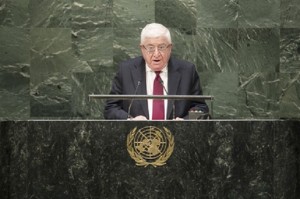
Iraq busca un ministro suní “independiente” contra el EI
El presidente de Iraq, Fuad Masum, anunció que el gobierno busca un suní independiente para ocupar el cargo de ministro de Defensa, en un esfuerzo por mejorar las posibilidades de reunificación del país y de derrotar al grupo extremista Estado
